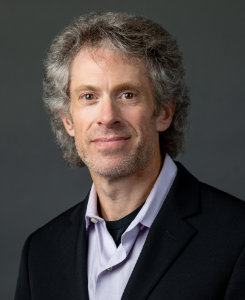This is part of a Reveille series on the candidates running for Louisiana State Senate District 14. For Quentin Anthony Anderson, click here. For Larry Selders, click here.
Growing up in a neighborhood where opportunity seems scarce and challenges seemingly lurk around every corner, a young person’s future can oftentimes be determined by the cards they’re dealt. For some, the path forwards can be clear, while for others, the weight of their circumstances can hold them back.
But for Carolyn Hill, those very challenges sparked a fire to create change not only for herself, but for her community as well.
Now running as a Democrat for State Senate District 14 to succeed Cleo Fields, who was recently elected to the U.S. House of Representatives, Hill brings a wealth of experience and a deeply personal connection to her campaign’s priorities.
An alumna of LSU and Southern University, she has dedicated her career to social work and education, including her tenure on the State Board of Elementary and Secondary Education. Rooted in her own life experiences, Hill’s campaign focuses on tackling three major issues facing not only District 14, but the state as a whole: education reform, crime prevention and division.
“When you look at Senate District 14, people want something different. We can’t continue to do business like we used to. I’m here to offer that opportunity and to be a change agent,” Hill said.
Hill’s drive to become a candidate for District 14 has been propelled by her experiences from her early life. She grew up in an impoverished urban community, where both of her parents struggled with substance abuse, and her father passed away from an overdose when she was very young. Due to her parents’ struggles, Hill was frequently shuffled between various caretakers, including other family members, and even spent time in foster care.
Determined to break the cycle, Hill saw education as her way out. That belief shaped her career in education and social work, where she now fights to give kids in similar situations a chance to break the cycle and pursue a better future.
“All the challenges that I have faced in life, I don’t regret them or wish they were different. They made me the woman I am today,” Hill said. “It made me the loving, caring, strong-minded, independent-thinking woman that I am today. I believe that shaped me to want to get into politics.”
A key element of Hill’s vision for a better future for kids in situations like the one she faced is her Dream Initiative, which aims to ease the financial burdens that often prevent students from completing their education. The initiative focuses on reducing fees that can accumulate throughout a student’s college journey, such as application and transcript fees, which are often overlooked in a student’s tuition budgeting.
Hill also aims to eliminate these fees for students who come from foster care, ensuring that these students have a fair chance at success. She also plans to make sure any necessary fees are easily understood by all students.
“I see that our students are hurting financially. Their parents are struggling to afford the tuition regardless of what walk of life they come from. I just want to make sure that our students are not in the position where they attend a higher ed. institution and then they can’t afford to stay and have to leave, regardless of whether they attend a two-year or four-year institution,” Hill said.
Hill’s approach to combating crime is deeply intertwined with her views on education. She believes that addressing juvenile crime begins with identifying and supporting chronically truant students. By providing additional resources to these at-risk students, she hopes to help them succeed and avoid the violent cycles that often trap them.
A lack of accountability at home is another critical factor Hill points to in the rise of juvenile crime. With many parents working long hours or multiple jobs, children can often lack the supervision and guidance they need. Hill argues that targeting these kids, who are both truant and lack accountability at home, allows for early intervention and the ability to offer rehabilitation to prevent them from falling into destructive patterns.
“Those who are repeat offenders, we do have to make sure they face consequences. We do. And with those consequences, we still need to have resources in place to help rehabilitate them, too,” Hill said.
For Hill, the issues of crime and education are deeply connected to what she sees as the most urgent challenge in District 14: division. The district covers a large part of North and South Baton Rouge, including LSU and a smaller section of the newly established city of St. George. Hill believes there is much work to be done to bridge the gap between these two areas, and she sees listening and compromising as essential steps toward healing these divides.
She points to her recent experience with a bipartisan political consultancy firm as proof of her ability to tackle this challenge. Having collaborated with both Republicans and Democrats, Hill feels well-equipped to bridge political divides and promote bipartisan support for policies like the Dream Initiative.
“It is not about whether you have a ‘D’ or an ‘R’ or even an ‘I’ in front of your name; it’s about what is best for everybody. Republicans and Democrats, they really just have two different philosophies, but that doesn’t mean that they’re bad, and that doesn’t mean we can’t work together. With their philosophy and my philosophy, we can come together and make a whole new philosophy,” Hill said.
When asked why LSU students should support her, Hill emphasized her commitment to bringing meaningful change and fostering unity within the community. She promises to be an accessible and responsive voice for students, advocating for their needs and ensuring their concerns are heard. Hill said she is also dedicated to working closely with the LSU president to improve students’ quality of life, making sure they receive the support and opportunities they deserve.
“I have purple and gold in my blood and so I understand the needs of our students. I want to say to Tigerland, to my LSU babies, that this is a very important election. This is their future,” Hill said.
Early voting began Feb. 1 and ends Feb. 8. Election day is Feb. 15.












